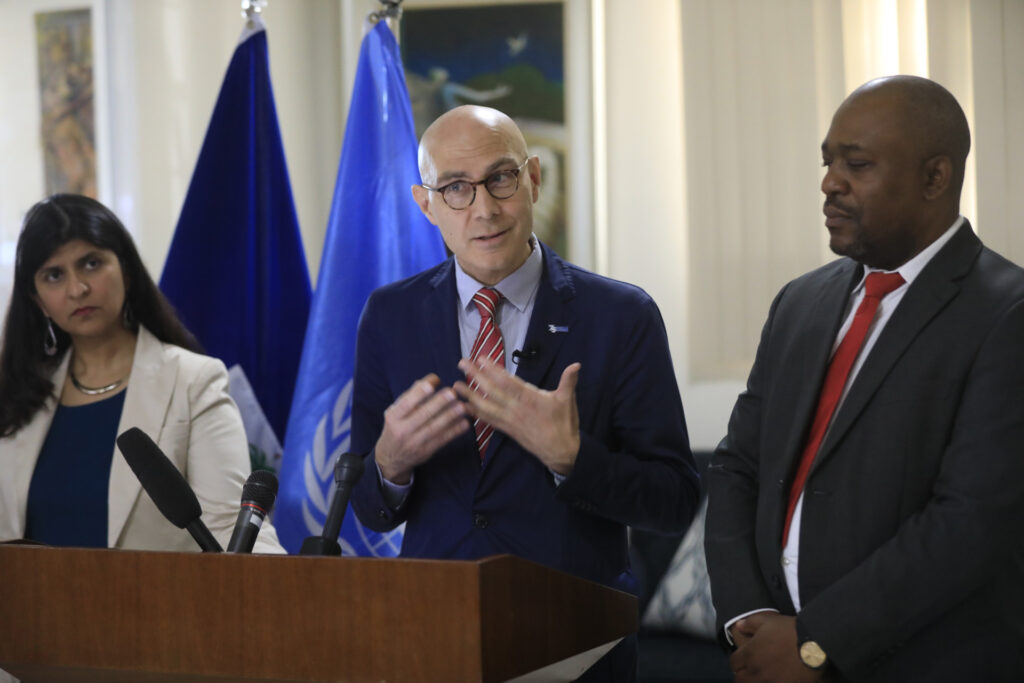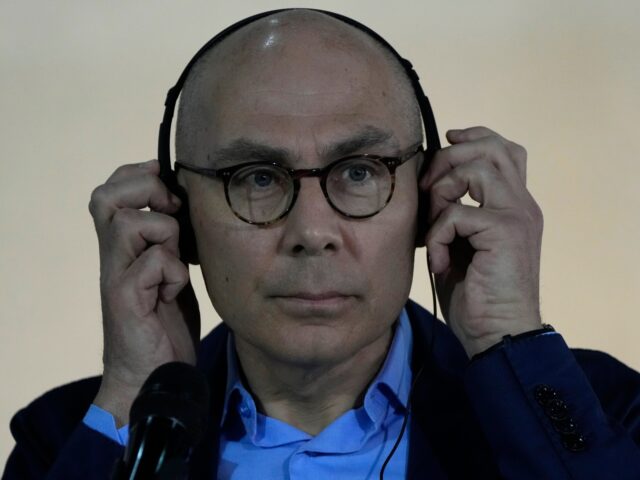Volker Türk, the U.N. High Commissioner for Human Rights, has called the battle against climate change the “defining struggle of our generation.”
In a lengthy March 7 global update of human rights concerns in over 40 countries, Türk highlighted the centrality of climate change, blaming all weather-related troubles on global warming.
We must “call out fake climate solutions,” Türk exhorted. “I deplore the attempts by the fossil fuel industry at global climate talks and elsewhere to greenwash their reputation and derail our goal of decarbonization.”
Türk went on to urge the leaders of “every country” to provide “public access to information on environmental risks and Government policies” as well as “protection of those who raise concerns over environmental crimes, or policies that result in harm.”

United Nations High Commissioner for Human Rights Volker Türk, center, gives a press conference in Port-au-Prince, Haiti, Friday, Feb. 10, 2023. (AP Photo/Odelyn Joseph)
Especially pernicious are those who “bash” climate protests or design laws “that unfairly restrict activities that call the public’s attention to climate harms,” he declared, as well as “allowing attacks on activists to go unpunished.”
These are “tactics that harm all States and all human beings. And they need to be addressed, urgently,” he stated.
In a verbal tour of some of the regions most affected by climate change, Türk said Somalia “is currently enduring a historic drought, with agonizing impact on the lives and rights of millions of people,” and the situation is aggravated by interference from the Al-Shabaab Islamic terror group, “which targets water sources and infrastructure to punish communities perceived to support the Government.”
In the Sahel region, “climate change-related soil degradation and declining food production” has had a “profound impact” on income, health, resource competition, conflict, and displacement, he asserted.
The impact of rising temperatures on the people of the Sahel “will be permanent and devastating,” he added.
RESET: Nature is determined to destroy humanity through flood, famine, fire, and pestilence, U.N. Secretary-General Guterres declared Wednesday, prophesizing the time has come for us to repent and mend our ways through a great climate and economic "reset." https://t.co/sZUDhH7YT8
— Breitbart News (@BreitbartNews) December 4, 2020
“Iraq is also suffering profound damage from climate change, with sharply increasing temperatures, less rainfall, and more dust storms,” Türk declared, and “7 million Iraqis risk being unable to meet their water needs in the near future.”
“I am also concerned about the shrinking space for free expression in the country,” he said as an aside.
The High Commissioner also voiced his support for climate action in Pacific Island States such as Vanuatu, which is seeking an opinion “from the International Court of Justice on the obligations of States to protect the rights of present and future generations against the adverse effects of climate change.”
“Climate finance funds need to reach those most affected and most vulnerable, and they need to build in strong human rights safeguards,” he insisted.

COMMENTS
Please let us know if you're having issues with commenting.